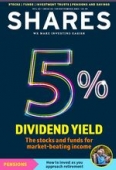Archived article
Please note that tax, investment, pension and ISA rules can change and the information and any views contained in this article may now be inaccurate.
The lowdown on non-fungible tokens and why NFTs are in fashion

Plenty of investors have had their heads turned by bitcoin and other cryptocurrencies but the explosion of digital investments doesn’t stop there – Non-Fungible Tokens, or NFTs, are another route to potential wealth creation, if you’re happy to accept the risks.
NFTs are digital tokens used for representing the possession of distinctive items. Things like art works, movies and memes can be tokenised using blockchain technology giving the owner the potential to earn royalty income for use by third parties, a type of licencing model, or make capital gains.
At the moment, NFTs are largely used for merchandising exclusive goods online. For example, Jack Dorsey, the co-founder of Twitter, auctioned his first tweet via an NFT, raising the equivalent of $2.9 million in cash, money that he donated to charity. But, in theory, they have wide scope because of what experts claim are NFTs’ advantages, such as rarity, indestructibility, indivisibility and uniqueness.
This is a new market and the opportunities come with risks. There is no guarantee that demand for digital assets will continue into the future, so you risk paying a price for an NFT that may prove to have little or no value in time.
Volatility is also seemingly inherent. For example, between April and the end of June this year, Flow, the blockchain platform designed for apps, games, and the digital assets that power them, saw its value fall 78%.
And much like cryptocurrencies, an NFT owner is beholden to marketplaces and platforms, Open Sea or Rarible for example, where they are held. What happens if they go out of business or are hacked?
Equally, policing your NFT rights is also in question. Presuming that the NFT market develops and expands, it will face regulation. The industry isn’t regulated at all right now but if it inches towards the mainstream, rules will undoubtedly be put in place that could add limits and constraints.
One way to invest in the NFT space is via shares in NFT Investments, a £27 million investment company which aims to invest in NFTs and which is listed on the Aquis Exchange. It claims to have an experienced management team that has handled peaks and troughs in digital asset valuations.
‘Growth opportunities in digital assets and NFTs offer considerable potential for generating value for long-term investors,’ claimed NFT Investments’ executive chairman Jonathan Bixby in June. He’s the man behind bitcoin miner Argo Blockchain (ARB). The sensible approach would be to watch from the sidelines for the time being and see how the NFT sector develops.
Important information:
These articles are provided by Shares magazine which is published by AJ Bell Media, a part of AJ Bell. Shares is not written by AJ Bell.
Shares is provided for your general information and use and is not a personal recommendation to invest. It is not intended to be relied upon by you in making or not making any investment decisions. The investments referred to in these articles will not be suitable for all investors. If in doubt please seek appropriate independent financial advice.
Investors acting on the information in these articles do so at their own risk and AJ Bell Media and its staff do not accept liability for losses suffered by investors as a result of their investment decisions.

 magazine
magazine








